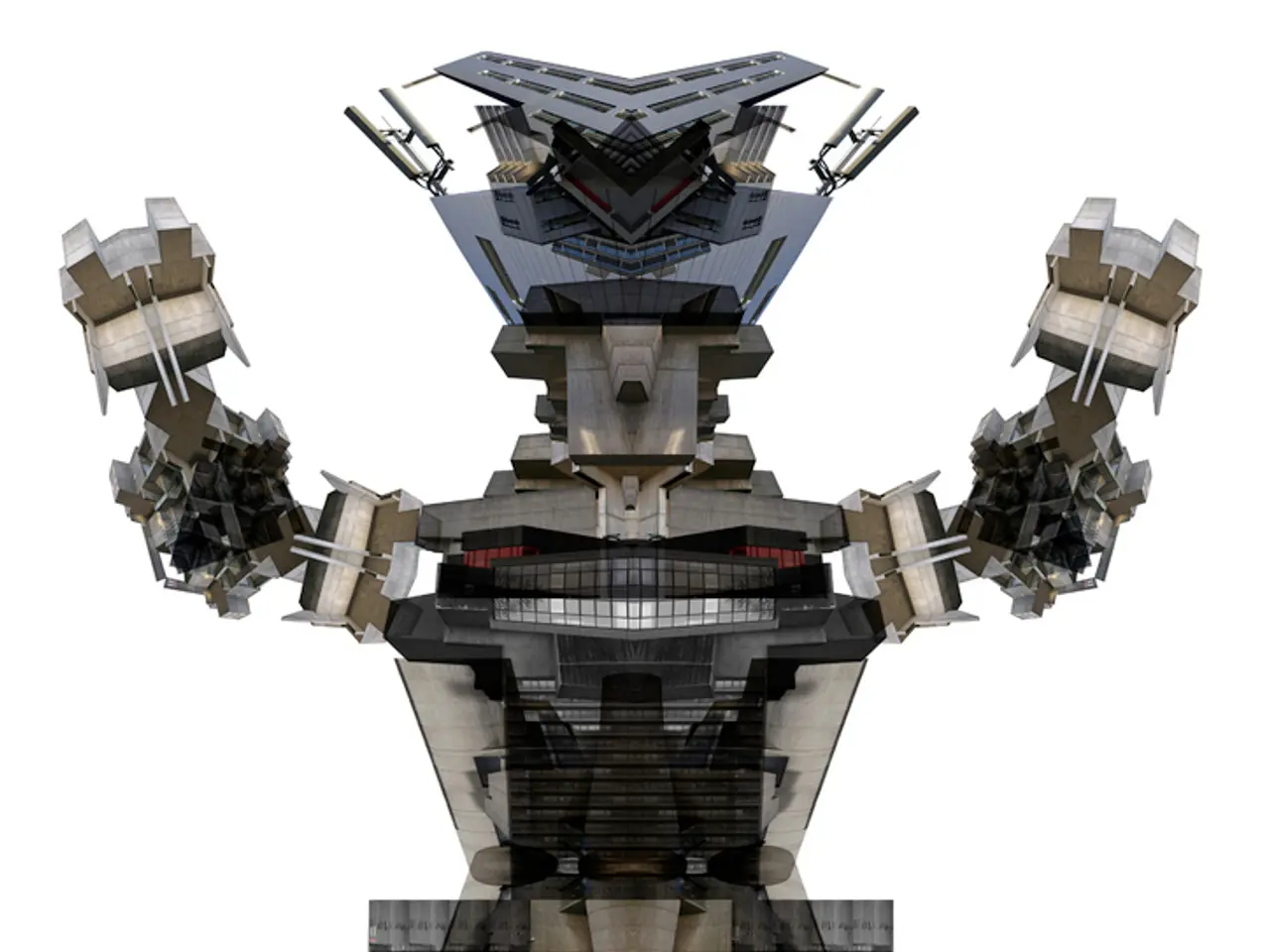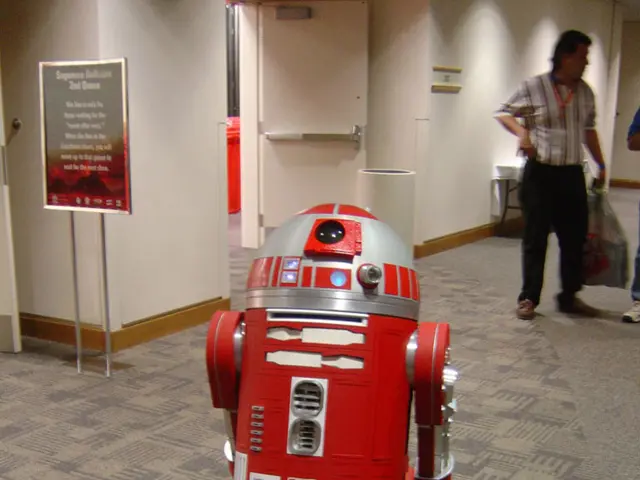Artificial intelligence merging with mechanical bodies: 'Alien: Earth' hints at tomorrow's reality.
In the realm of technology, two intriguing narratives are converging, blurring the lines between science fiction and reality. On one hand, Elon Musk's Neuralink, a company developing brain-computer interfaces, has made significant strides, implanting its first chip in a human last year. Simultaneously, the new FX series, "Alien: Earth", delves into a future where human consciousness is uploaded into android bodies, and cyborgs, synths, and hybrids dominate Earth.
The story of "Alien: Earth", set in 2120, serves as a prequel to the original 1979 "Alien" film, taking place two years before the events in 2122. This series bridges the gap between the earlier prequel films and the original Alien timeline, filling in story elements on Earth before the Nostromo's encounter with the Xenomorph.
The series unfolds in a near-future Earth dominated by rival corporations, all vying to create new forms of life. Neuralink, although not a central character in the narrative, is a real-world company that has been working on brain-computer interfaces for over a decade.
However, the larger questions that these advancements raise are strikingly similar to those presented in "Alien: Earth". David Ryan Polgar, the founder of All Tech Is Human, questions whether the result of uploading human consciousness is a continuation of the individual's life or a new, altered being. He also wonders if striving to live forever is a worthy pursuit, suggesting it could lead to a dystopian future.
Polgar draws a clear line between what Neuralink is pursuing and what Prodigy Corp. accomplishes in "Alien: Earth". Prodigy Corp. secretly uploads several terminal children into android bodies, all designed as young adults. Wendy, the protagonist of the series, is one such hybrid, a combination of human and android.
Yet, the main problem remains: we still don't understand what consciousness is, nor how it functions. Prof. Carlos Gershenson-Garcia, a researcher in artificial intelligence and robotics, echoes this sentiment, stating that tech companies are many years from implanting our souls into robots or computer chips.
As these advancements push the boundaries of what it means to be human, ethicists and thinkers like Polgar urge companies to collaborate with them. The moral responsibilities that come with creating conscious machines may be more than we are currently prepared to handle.
Paradoxically, the very beauty of life is tied to its fragility, according to Polgar. As we venture into uncharted territories, it is crucial to consider the implications of our actions and strive for a future that respects the sanctity of life, rather than threatening it.
References:
[1] "Neuralink implants first brain chip in human." BBC News, 29 Aug. 2020, https://www.bbc.com/news/science-environment-54033811
[2] "Alien: Earth (TV series)". IMDb, https://www.imdb.com/title/tt10434524/
[3] "Alien: Earth". FX, https://www.fxnetworks.com/shows/alien-earth
[4] "Alien: Earth". Screen Rant, https://screenrant.com/alien-earth-release-date-plot-trailer-details/
[5] "Alien: Earth (TV series)". TV Guide, https://www.tvguide.com/tvshows/alien-earth/alien-earth-season-1/1100729772/
Read also:
- Fragrance imports from Kaş might have been among Europe's earliest bottles discovered.
- Tech mogul Erik Bergman, founder of Great.com, contributes a million dollars to clean water initiatives in Africa.
- Growing interest in private solar energy systems among American residents, emulating a widespread European trend.
- Brunswick Exploration Uncovers Extensive Lithium Deposits in Greenland's Pegmatite Field








